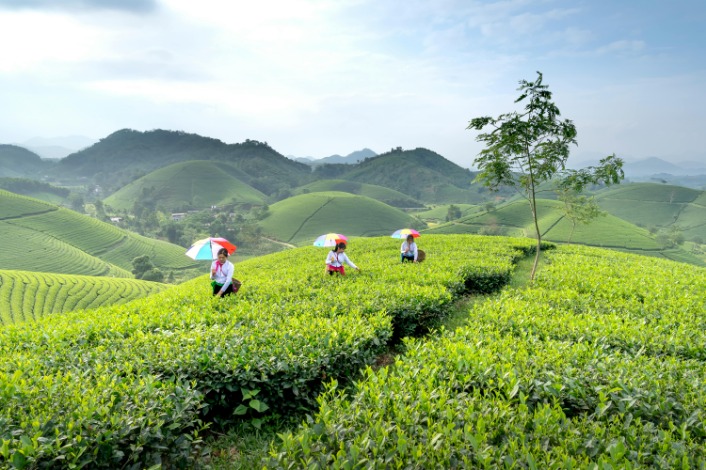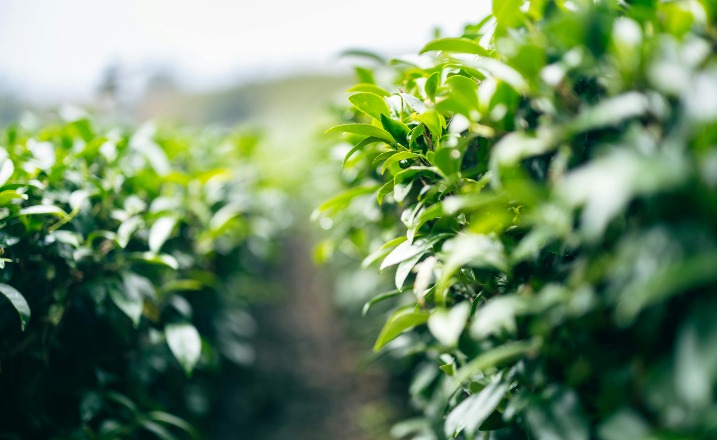Overview of Botswana Bush Tea
Botswana Bush Tea is a traditional herbal beverage cherished for its unique flavor and potential health benefits. Sourced from native plants found in the Botswana wilderness, this tea has been an integral part of local culture and wellness practices for generations. Its natural ingredients are renowned for their soothing properties and rich aroma, making it a popular choice among tea enthusiasts seeking a refreshing and herbal experience.
Definition and Origin
Botswana Bush Tea is a traditional herbal beverage originating from the indigenous plants of Botswana. Known for its distinctive flavor and herbal properties, it is widely consumed for its health benefits and cultural significance. The tea is typically made by infusing dried leaves and stems of local bush plants, such as the Sutherlandia or other native herbs, in hot water.
Definition and Origin

Botswana Bush Tea refers to a herbal infusion crafted from native Botswana plants, and it has been a part of the region’s cultural practices for generations. Its origin is deeply rooted in the indigenous knowledge of herbal medicine, used traditionally to promote health, treat ailments, and deliver spiritual benefits. The practice of making bush tea has been passed down through communities, reflecting the natural flora of Botswana and its reliance on nature for medicinal and daily needs.
Traditional Uses and Significance
Botswana bush tea, also known as “Bush Tea” or “Kgubiko,” is a traditional herbal beverage native to Botswana. It is made from various local plants and herbs, often harvested from the wild or cultivated areas, and is cherished for its natural medicinal properties. The tea plays an important role in the cultural practices and everyday life of Botswana’s communities.
Traditionally, Botswana bush tea is used to treat a range of ailments, including colds, stomach issues, and fever. It is often consumed as a natural remedy to boost immunity and promote general well-being. Besides its medicinal benefits, the tea is also valued for its refreshing taste and soothing effects, making it a popular beverage among locals. The preparation and use of bush tea are deeply embedded in Botswana’s cultural heritage, symbolizing health, community, and traditional knowledge passed down through generations.
Botanical Characteristics
Botswana bush tea is renowned for its unique botanical characteristics that distinguish it from other traditional teas. Native to the region, this plant exhibits distinctive features such as its aromatic leaves, vibrant green hue, and hardy nature, making it well-suited to the local climate. Understanding its botanical traits provides valuable insight into its cultural significance and health benefits.
Plant Species and Identification
Botswana bush tea, also known as Sutherlandia or Cancer bush, is a distinctive plant native to Southern Africa. Its botanical characteristics include a small, shrubby structure with densely branched stems and vibrant green leaves. The plant produces bright orange or red flowers that are bell-shaped and attract various pollinators. The leaves are oval-shaped with smooth margins, and the plant typically reaches a height of about one meter.
Several plant species are commonly associated with Botswana bush tea, including Sutherlandia frutescens, which is the most recognized for its medicinal properties. Sutherlandia frutescens is characterized by its leathery, kidney-shaped leaves and striking follicle flowers that appear in clusters. Other related species may have similar shrub-like growth forms but differ in flower color and leaf shape.
Identification of Botswana bush tea requires observation of key features such as the plant’s growth habit, leaf shape, and flower color. The plant’s bushy appearance, with densely packed stems and distinctive orange or red blossoms, helps distinguish it from other local flora. Its aromatic leaves and the presence of terminal clusters of flowers are also useful identifiers. Proper identification is essential to ensure the correct species is used for its medicinal benefits and to prevent confusion with similar plants.
Habitat and Growing Conditions
Botswana Bush Tea, also known as Sutherlandia frutescens, is a small, woody shrub featuring vibrant, orange-red flowers and bright green, ovate leaves. The plant typically grows to about 1 to 2 meters in height, with a dense, bushy appearance. Its botanical characteristics include its thorny stems and clusters of star-shaped flowers that bloom throughout the year, especially in the warmer months.
This plant is native to the semi-arid regions of Southern Africa, particularly Botswana, South Africa, and Namibia. It thrives in dry, rocky, and well-drained soils, often found in open savannas and grasslands. Botswana Bush Tea is well-adapted to harsh climatic conditions, including high temperatures and low rainfall, making it highly resilient in its natural habitat.
For optimal growth, Botswana Bush Tea requires full sun exposure and minimal watering once established. It prefers sandy or gravelly soils that do not retain excessive moisture. The plant benefits from well-drained soil conditions and can tolerate drought, making it suitable for cultivation in similar arid and semi-arid environments. Regular pruning encourages bushier growth and more abundant flowering, enhancing both its ornamental and medicinal qualities.

Health Benefits and Medicinal Properties
Botswana bush tea is renowned not only for its refreshing taste but also for its impressive health benefits and medicinal properties. Traditionally enjoyed by local communities, this herbal infusion is believed to support overall wellness, boost the immune system, and aid in various health conditions. Its natural compounds make it a popular choice for those seeking a holistic approach to health and well-being.
Digestive Aid
Botswana bush tea is renowned for its health benefits and medicinal properties, particularly as a natural digestive aid. Rich in antioxidants and vitamins, it helps soothe stomach discomfort, improve digestion, and reduce inflammation. Traditionally used in Botswana for treating various gastrointestinal issues, it supports overall digestive health by calming the digestive tract and promoting efficient nutrient absorption. Additionally, its calming effects can help alleviate stress-related digestion problems, making it a beneficial herbal remedy for maintaining a healthy gut.
Antioxidant and Detoxification Effects
Botswana bush tea is renowned for its numerous health benefits and medicinal properties, making it a popular choice for those seeking natural remedies. Rich in antioxidants, this tea helps combat free radicals in the body, reducing oxidative stress and supporting overall health. Its detoxification effects assist in cleansing the liver and improving digestion, contributing to enhanced vitality. Consuming Botswana bush tea may also bolster the immune system and promote better skin health, making it a valuable herbal infusion for maintaining wellness and preventing disease.
Anti-inflammatory and Anti-microbial Properties
Botswana bush tea is renowned for its numerous health benefits and medicinal properties. It has been used traditionally to promote wellness and treat various ailments, making it a valuable herbal remedy.
One of the notable qualities of Botswana bush tea is its anti-inflammatory properties, which help reduce swelling and alleviate pain associated with conditions like arthritis and muscle injuries. Additionally, it exhibits strong anti-microbial effects, making it effective against certain bacteria and fungi, thereby supporting the immune system and preventing infections.
- Contains natural compounds that reduce inflammation and soothe symptoms of inflammatory conditions.
- Possesses antimicrobial agents that inhibit the growth of harmful pathogens.
- Supports immune health and helps in fighting off infections.
- Used traditionally to treat digestive issues, respiratory problems, and fevers.
- Rich in antioxidants that combat oxidative stress and promote overall health.
Preparation and Consumption
Preparation and consumption are essential aspects of enjoying Botswana bush tea, a traditional herbal infusion renowned for its cultural and medicinal significance. Understanding the proper methods of preparing this distinctive tea enhances its flavor and benefits, while appreciating the customs surrounding its consumption offers insight into Botswana’s rich heritage. Whether enjoyed for relaxation or healing purposes, the way bush tea is prepared and consumed reflects the deep-rooted traditions of the region.
Traditional Methods of Preparation
Botswana bush tea is a traditional beverage that holds cultural significance in Botswana. Its preparation and consumption involve methods passed down through generations, reflecting the community’s connection to nature and wellness. The traditional methods emphasize simplicity and natural ingredients, making it a popular choice for both everyday enjoyment and ceremonial purposes.
Traditional Methods of Preparation of Botswana Bush Tea:
- Gathering the Leaves: The bush tea is made from the leaves of the local wild trees, often the Salsola species, collected carefully from the wild or cultivated areas.
- Drying the Leaves: The freshly collected leaves are spread out in the sun to dry naturally, preserving their flavor and medicinal properties.
- Crushing and Grinding: Once dried, the leaves are crushed or ground into smaller pieces using traditional tools like mortar and pestle.
- Boiling: The prepared leaves are then added to boiling water, allowing them to steep for several minutes to extract their flavors and beneficial compounds.
- Serving: The tea is typically strained to remove any remaining leaf particles and poured into cups, often consumed warm.
Modern Recipes and Variations
Botswana bush tea is a traditional beverage that has been enjoyed for generations, valued for its refreshing taste and health benefits. Preparation typically involves harvesting native shrubs, such as the leaves of the Strychnos cocculoides or other indigenous plants, which are then thoroughly washed and boiled to extract their flavors. Once brewed, the tea is often enjoyed hot, infused with herbs like mint or sweetened with sugar, honey, or local fruits to enhance its flavor.
When consuming Botswana bush tea, it is customary to sip slowly, appreciating its earthy aroma and medicinal qualities. The tea is not only a thirst quencher but also believed to aid digestion, boost immunity, and provide various health benefits rooted in traditional medicine.
Modern recipes for Botswana bush tea often incorporate contemporary ingredients, such as adding lemon or ginger for a zesty twist or blending with other herbal teas for a unique flavor profile. Variations include cold brewing for a refreshing summer drink or mixing with fruit juices for a more vibrant experience. Some enthusiasts experiment with sweeteners like agave syrup or honey to balance the earthiness of the tea, making it appealing to a broader audience while maintaining its cultural significance.
Serving Suggestions and Best Practices
Preparation and consumption of Botswana bush tea involve a simple yet enriching process that highlights the natural flavors of the indigenous herbs. Typically, dried leaves and branches of local plants are steeped in hot water for several minutes until the infusion develops a fragrant aroma. The tea can be enjoyed hot or cold, depending on personal preference. To enhance the flavor, a touch of honey or lemon can be added, complementing its earthy and soothing qualities.
When serving Botswana bush tea, it is best to present it in traditional cups or mugs to preserve its warm aroma. For a more authentic experience, consider serving the tea with traditional snacks or local delicacies, creating a sense of cultural immersion. For cold servings, chilling the tea before pouring over ice provides a refreshing beverage ideal for hot climates.
Best practices in preparing Botswana bush tea involve using fresh or properly dried herbs to ensure optimal flavor and health benefits. Always boil water to a rolling boil before steeping, and allow the tea to infuse sufficiently—usually 5 to 10 minutes—to extract maximum flavor. It is important to handle the herbs gently and avoid over-steeping, which can result in a bitter taste. Additionally, sourcing herbs sustainably and respecting local traditions enhances the cultural significance and promotes conservation efforts. Enjoying this herbal tea mindfully not only refreshes the body but also connects one to Botswana’s rich botanical heritage.
Cultural and Societal Significance
Botwana bush tea holds a special place in the cultural and societal fabric of the region, embodying traditions, history, and community identity. This unique beverage is more than just a drink; it symbolizes hospitality, unity, and resilience for the people of Botswana. By exploring the significance of bush tea, we gain insight into the rich cultural heritage and social practices that shape the everyday lives of its communities.
Role in Botswana Culture and Traditions
Botswana bush tea holds a deep cultural and societal significance in Botswana, serving as more than just a traditional beverage. It is an important part of social gatherings and ceremonies, symbolizing hospitality and unity within communities. The preparation and sharing of bush tea often foster bonds among family members and neighbors, strengthening social ties. In Botswana culture, the act of brewing and drinking bush tea reflects respect for tradition and reverence for ancestral practices. Additionally, it plays a vital role in preserving indigenous knowledge about local plants and natural remedies, passing this wisdom from one generation to the next. Overall, Botswana bush tea is a cherished cultural asset that embodies the spirit of community, tradition, and natural heritage in Botswana society.
Social Gathering and Rituals
Botswana bush tea holds a profound cultural and societal significance, serving as a symbol of hospitality and community bonding among the local tribes. It is more than just a beverage; it is an integral part of social interactions, representing respect and unity during gatherings. Traditionally, sharing bush tea fosters conversations and strengthens relationships, reflecting the values of friendship and community cohesion. Rituals surrounding the preparation and serving of Botswana bush tea often involve specific customs passed down through generations, reinforcing cultural identity and heritage. These social gatherings and rituals not only preserve traditional practices but also create a sense of belonging and continuity within Botswana society.
Economic Impact and Commercial Production
Botswana bush tea holds a deep cultural and societal significance, symbolizing traditional practices and indigenous knowledge passed down through generations. It is often associated with community gatherings, rituals, and ceremonies, fostering social bonds and preserving cultural heritage. The preparation and consumption of bush tea serve as a means of reinforcing cultural identity among local communities.
Economically, Botswana bush tea contributes to local economies by providing a source of income for indigenous harvesters and small-scale producers. Its demand extends beyond local markets, attracting interest from tourists and herbal product enthusiasts worldwide. This growing market offers opportunities for sustainable livelihood development and promotes the preservation of native plant species.
In terms of commercial production, efforts are underway to standardize and regulate the harvesting and processing of Botswana bush tea to ensure quality and sustainability. Commercial ventures aim to meet increasing demand while protecting the environment, often incorporating eco-friendly practices. As awareness of its health benefits and cultural value spreads, Botswana bush tea is becoming a noteworthy product on the international herbal and wellness market.
Environmental Impact and Conservation
Environmental impact and conservation are essential topics when exploring the production of Botswana bush tea. As a unique and valuable natural resource, the harvesting and processing of this traditional herbal tea can influence local ecosystems and biodiversity. Ensuring sustainable practices helps protect the environment while preserving the cultural heritage associated with Botswana bush tea for future generations.
Sustainable Harvesting Methods
Botswana bush tea, a traditional and cherished beverage, plays an important role in the local culture and economy. However, the increasing demand for this herbal tea has raised concerns about its environmental impact and the sustainability of wild harvesting practices. Overharvesting of wild bush tea plants can lead to habitat degradation, loss of biodiversity, and a decline in plant populations, threatening the sustainability of this valuable resource.
To promote conservation and ensure the long-term availability of Botswana bush tea, sustainable harvesting methods are essential. These methods include selective harvesting, such as only taking mature leaves and stems to allow the plants to regenerate, and avoiding destructive techniques like uprooting entire plants. Cultivation practices can also be implemented to reduce pressure on wild populations, including the domestication and farming of bush tea in controlled environments. Community-based management programs are crucial in involving local communities in sustainable practices, providing education on the importance of conservation, and establishing harvesting guidelines that balance economic benefits with environmental protection. By adopting these sustainable methods, Botswana bush tea can continue to be enjoyed by future generations while preserving the ecological integrity of its natural habitats.
Threats to Wild Populations
Botswana bush tea, derived from native plants, plays a significant role in the country’s cultural and medicinal traditions. However, the increasing demand for this natural resource has raised concerns about its environmental impact and the need for sustainable practices. Overharvesting wild populations threatens the delicate ecosystems where these plants thrive, potentially leading to a decline in biodiversity. Habitat destruction from human activities such as agriculture, logging, and urban development further exacerbates these threats, endangering not just the plants used for bush tea but also other species within these ecosystems. Conservation efforts are essential to protect these vital plant populations, ensuring that Botswana’s natural heritage remains intact for future generations and maintaining ecological balance. Sustainable harvesting techniques, community engagement, and law enforcement are critical components in safeguarding wild populations and promoting environmentally responsible use of this culturally valued resource.
Conservation Efforts and Cultivation Initiatives
Botswana bush tea plays a significant role not only in local traditions but also in the preservation of Botswana’s natural environment. Its harvesting and cultivation need careful management to minimize ecological disruption and ensure the sustainability of wild plant populations. Conservation efforts focus on protecting the native habitats where these plants thrive, preventing overharvesting and habitat destruction caused by unsustainable practices.
Numerous initiatives have been introduced to promote the conservation of Botswana bush tea, including community-based programs that involve local populations in sustainable harvesting and stewardship. These initiatives often include education on sustainable cultivation methods and the importance of maintaining biodiversity. Cultivation projects also aim to cultivate Botswana bush tea in controlled environments, reducing pressure on wild resources and supporting local economies through the legal, sustainable production and sale of the tea.
Overall, the conservation and sustainable cultivation of Botswana bush tea are vital to preserving the environment, supporting local communities, and maintaining the cultural heritage associated with this traditional plant. Continued efforts in environmental protection and responsible cultivation will ensure that future generations can enjoy the benefits of Botswana bush tea without compromising the ecosystem’s health.





0 Comments